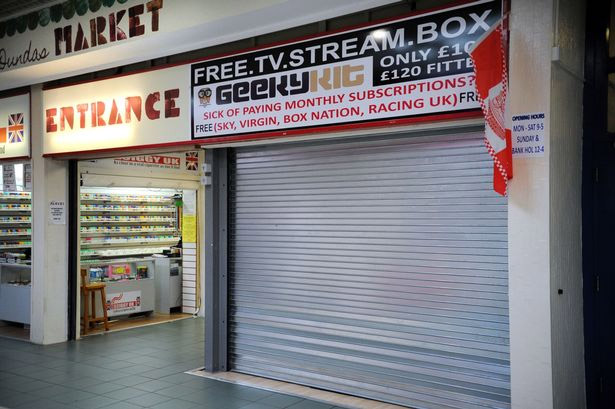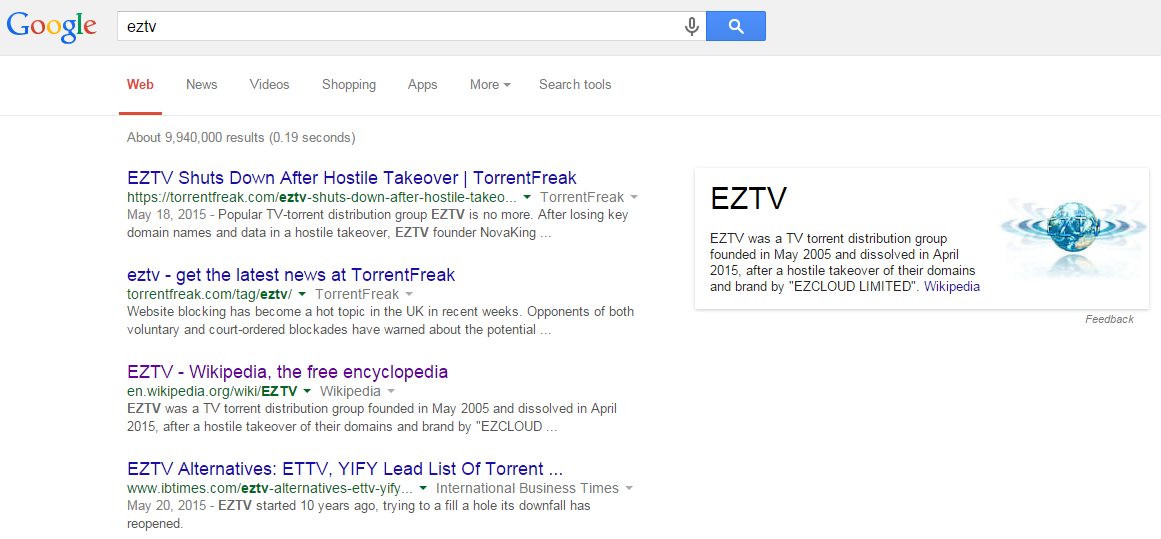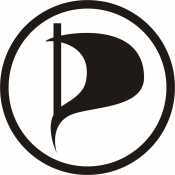Google Fails to Overturn Worldwide Site-Blocking Order
vendredi 12 juin 2015 à 16:22 The prominence of Google in endless Internet-related matters often sees the company get tangled up in the disputes of others. A case from 2014 provides a particularly interesting example.
The prominence of Google in endless Internet-related matters often sees the company get tangled up in the disputes of others. A case from 2014 provides a particularly interesting example.
Equustek Solutions Inc. v. Jack saw two Canadian entities embroiled in legal action over stolen intellectual property used to manufacture competing products.
Google has no direct links to the case whatsoever, yet it became sucked in when Equustek Solutions claimed that Google’s search results were helping to send visitors to websites operated by the defendants (former Equustek employees) that were selling unlawful products.
Google previously removed links to the sites from its Google.ca results on a voluntary basis, but Equustek wanted a broader response. In a subsequent court ruling handed in British Columbia, Google was ordered to remove the infringing websites’ listings from its central database in the United States, meaning that the ruling had worldwide implications.
Google was given a little under two weeks to comply with the decision but quickly appealed in the hope of achieving a better outcome. Now, a year later, the British Columbia Court of Appeal has handed down its decision and it’s more bad news for Google.
According to an analysis by Canadian law professor Michael Geist, the decision addresses two key questions, both involving jurisdiction.
i) Whether the court has jurisdiction over Google
ii) Whether the injunction handed down in Canada has power outside its borders
On the first issue, Google argued that it does not operate servers in British Columbia, nor does it have any local offices. However, the Court decided that the company does carry out business in the region.
“Google does not have resident employees, business offices, or servers in the Province, but its activities in gathering data through web crawling software, in distributing targeted advertising to users in British Columbia, and in selling advertising to British Columbia businesses are sufficient to uphold the chambers judge’s finding that it does business in the Province,” the ruling (pdf) reads.
On the second issue – whether a court order handed down in British Columbia could have jurisdiction beyond its borders – the Court of Appeal again ruled against Google.
“British Columbia courts are called upon to adjudicate disputes involving foreign residents on a daily basis, and the fact that their decisions may affect the activities of those people outside the borders of British Columbia is not determinative of whether an order may be granted,” the ruling reads.
Noting Google’s concerns that it could potentially be “subjected to restrictive orders from courts in all parts of the world, each concerned with its own domestic law,” the court underlined the importance of exercising caution when handing down orders that have the potential to limit expression in another country. However, it found no problem with the ruling of the lower Court.
“In the case before us, there is no realistic assertion that the judge’s order will offend the sensibilities of any other nation. It has not been suggested that the order prohibiting the defendants from advertising wares that violate the intellectual property rights of the plaintiffs offends the core values of any nation,” the ruling reads.
However, should any nation have an issue with the decision, they are free to appeal, the ruling adds.
“In the unlikely event that any jurisdiction finds the order offensive to its core values, an application could be made to the court to modify the order so as to avoid the problem.”
Dismissing Google’s appeal, Justice Groberman signs off on the blocking injunction in Equustek Solutions’ favor.
“The plaintiffs have established, in my view, that an order limited to the
google.ca search site would not be effective. I am satisfied that there was a basis, here, for giving the injunction worldwide effect,” the Judge concludes.
Google is reportedly considering its options, with an escalation to the Supreme Court a potential (but as yet unconfirmed) outcome.
Source: TorrentFreak, for the latest info on copyright, file-sharing, torrent sites and anonymous VPN services.
 While paying subscriptions to services such as Netflix, premium satellite and cable channels, sports broadcasters and PPV outlets are legitimate ways to obtain content on a TV, there are others that require very little outlay.
While paying subscriptions to services such as Netflix, premium satellite and cable channels, sports broadcasters and PPV outlets are legitimate ways to obtain content on a TV, there are others that require very little outlay.

 After months of trouble with a hostile takeover as the climax, popular TV-torrent distribution group EZTV
After months of trouble with a hostile takeover as the climax, popular TV-torrent distribution group EZTV 
 Late 2014, Attorney-General George Brandis and Communications Minister Malcolm Turnbull asked the Australian Cabinet to approve the development of a new system which would allow rightsholders to obtain site-blocking injunctions against ISPs. In March a draft of that legislation was
Late 2014, Attorney-General George Brandis and Communications Minister Malcolm Turnbull asked the Australian Cabinet to approve the development of a new system which would allow rightsholders to obtain site-blocking injunctions against ISPs. In March a draft of that legislation was  In recent years
In recent years